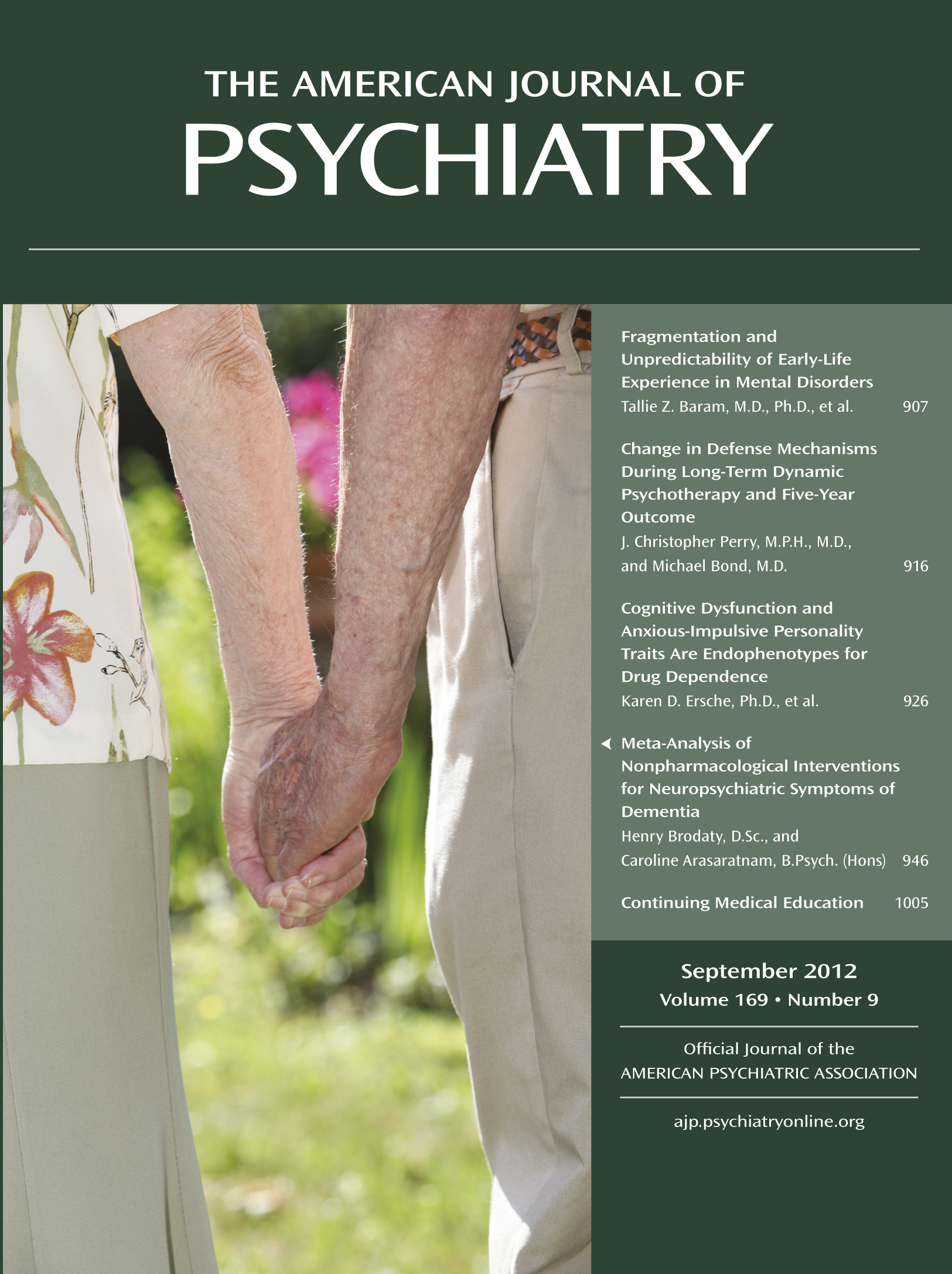Change in Defense Mechanisms During Long-Term Dynamic Psychotherapy and Five-Year Outcome
Abstract
Objective
Research suggests that defense mechanisms may underlie other aspects of functioning and psychiatric symptoms. The authors examined whether defenses change in accordance with the hierarchy of defense adaptation during long-term dynamic psychotherapy and whether such change is associated with long-term outcomes on other measures.
Method
Twenty-one adults with depressive, anxiety, and/or personality disorders entered long-term dynamic psychotherapy (mean=248 weeks) and subsequent follow-along (mean duration, 5.1 years). Measures of functioning and symptoms were gathered in periodic follow-along interviews, external to the therapy. A median of eight psychotherapy sessions over 2.5 years for each participant were rated using the Defense Mechanism Rating Scales quantitative method.
Results
Overall, the lowest (action) and highest (high adaptive) defense levels in the hierarchy of defenses improved significantly, as did overall defensive functioning (median effect size=0.71, 95% CI=0.01–1.83). Overall defensive functioning still remained below the healthy-neurotic range. A higher number of axis I disorders and childhood histories of sexual abuse and witnessing violence were associated with a slower rate of improvement in defenses. Change in defenses within therapy by 2.5 years was highly associated with significant levels of change at 5 years in external measures of both functioning (rs=0.60) and symptoms (rs=0.58), controlling for initial levels.
Conclusions
Change in defensive functioning in long-term psychotherapy largely follows the hierarchy of defense adaptation. The relationship to long-term improvement in outcomes suggests that defenses be considered candidates for mediating improvement in functioning and symptoms.



